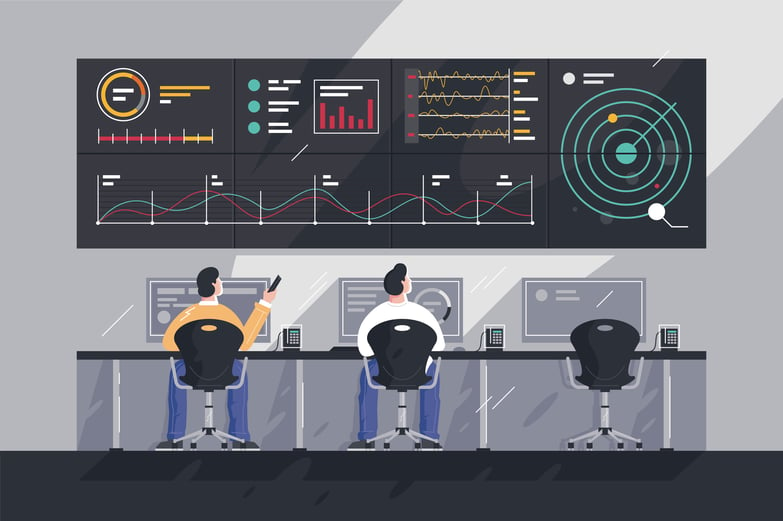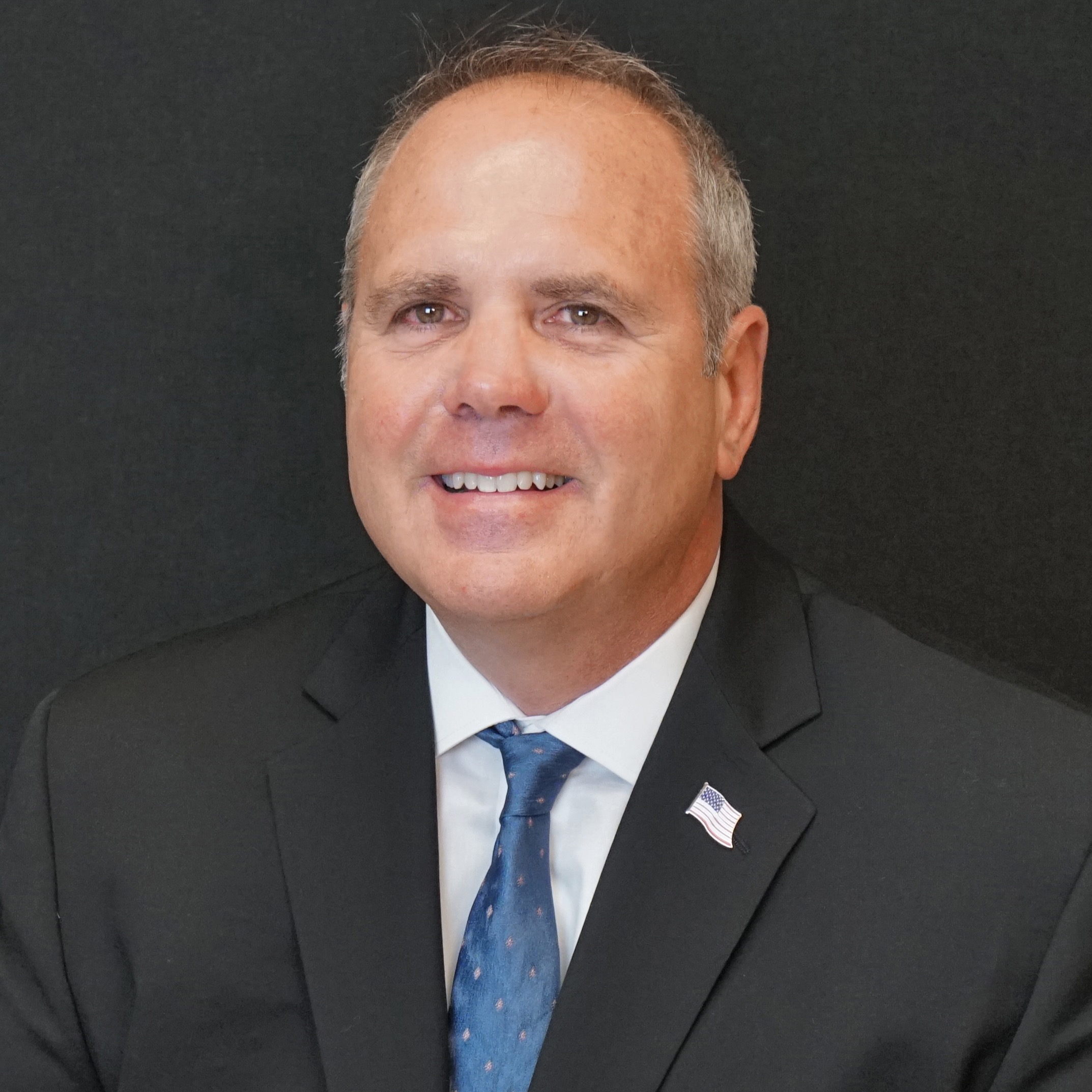Success Stories | Support Services | Network Monitoring | NOC
Network Monitoring: 3 Reasons Providers Don't Outsource

Joe Geroux is the Vice President of Support Services at CCI Systems. He has over 30 years of experience within Telecommunications, working with major operators, including Charter Communications, AT&T, MediaOne and Continental Cablevision. His experience includes leadership roles in Sales, Customer Support, Operations and Field Services. Joe has acquired extensive knowledge in Hospitality and the Multi-Dwelling industry, both in residential and commercial services, while gaining additional experience with Broadband and Fiber Networks.
Giving up network monitoring and triage support over an infrastructure built from scratch can be a tough fact to reckon with. An infinite number of variables surround the very thought of outsourcing network monitoring, even when it is the key to unlocking further development of the addressable market.
Hesitation is a normal response to the start of a new chapter, something many service providers face head-on when their home turf becomes highly saturated. This need can become more urgent as an onslaught of incoming network notifications begin to degrade their ability to maintain a high-quality of customer service.
To expand the market, expand the network and maintain maximum efficiency of your network, you need to know when to ask for help to keep growing.

Major Concerns of Outsourcing NOC Support
Each network is unique, and every provider may have their own processes to respond to network issues. Many times, smaller service providers rely on hard work, lack of sleep, and tight-knit teams to respond to network events. This scenario applies to both large service providers who grew too big, too fast, and small providers with only a few thousand customers.
It’s easy to assume no one can monitor this network better than the in-house team, whether it is local or regional. Yet, there comes a point in time when it no longer makes sense financially to do so. Inefficiency can become a cash hog when left unaddressed.
Admittedly, while the outsourced NOC technicians will never know the network as well as those who built it, they can have equal or greater success in response times to events with well-defined processes.
You and your team will be able to breathe deeper, rest more easily at night, save money, and ultimately, improve customer service by coordinating with a NOC.
My Network Is One-of-a-Kind
Network monitoring technicians and agents are trained to expect the unexpected. A common misconception is the abnormal qualities of a custom-built network will inhibit an outsourced NOC from capturing the intimate odds and ends. Any NOC support relies on accurate and up to date network documentation and trouble response processes.
Because of this, it is easy to assume a problem solved by the outsourced technicians will take five hours when your company could have a solution in one hour. This is not an accurate assumption.
Each network will have its quirks. Some are built out and customized based on their location and region, while others have equipment of various makes and models that are able to present inconsistencies across the monitoring board.
Despite each company being unique, outsourcing will allow you to create a solution that works specifically for you. Not all third parties will be 100% open to customization, due to added costs to implement new processes, so be sure to ask how they will tailor their network monitoring strategy to fit your needs.
Customization processes allow an outsourced NOC to take your network diagrams and run through scenarios with you and your technicians to optimize those work processes.
Uniqueness is not unconquerable, although it may require more time and resources to adapt to keep your network running smoothly, like the well-oiled machine it was meant to be.
We Are More Efficient In-House
By prioritizing where time is allocated 24-hours per day, your company will experience a real increase in efficiency, provide a better experience for your end users, and in turn, you will save money by eliminating unneeded expenditures, like unnecessary truck rolls.
As any provider knows, the literal cash hog itself is a service truck driving an hour at 2:00 A.M. only to find an incredibly easy solution. This wastes the time of the technician, and it wastes the hard-earned profits of the company. Monitoring could have prevented it.
Another common example is a flood of end users with the exact same problem all call within an hour’s time. It is widely apparent an outage is occurring, but your customers are the first to notify your team, so they’re already behind the curve. Each call costs your company anywhere from $7.00-to-$20.00 at a U.S.-based call center when the network outage was preventable by monitoring. Now, your company ends up footing an unexpected bill.
While it may be intimidating to permit access to network operators who are able to execute real-time updates and changes, it is a necessary step toward an uptick in customer satisfaction.
How Many Networks Are They Actually Monitoring?
Outsourced NOCs are highly efficient because they prioritize. If you have fifty fires to put out, a third party monitoring your network can tell you what fire to put out first.
The number of networks being monitored does not affect the technicians’ ability to handle multiple cases, nor does it prevent them from being proactive with evolving issues alerted from your specific network.
Reputable NOC teams will have well-defined software able to filter out all, or most, false alerts and learn to react quickly when major issues and alerts appear. Companies specializing in network monitoring oftentimes have staff and resources that are well beyond service provider skill sets, so you gain technical talent with third party NOCs.
It is true, technicians are absolutely looking at other networks as well as your own, and they cannot dive as deep into the details as an employee could, but they’re masters of this domain and they will handle problem areas with tact, while juggling multiple cases, if need be.
Most remote NOCs do not have the ability (or capabilities) to take on physical, in-person tasks, so it is their duty to provide immediate solutions and alerts by scanning the entirety of your network without fail.
Multitasking and the ability to pivot from one company persona to the next is a skill veteran technicians do on the daily, so a swivel chair approach is nothing new.
What Life Will Look Like After the Handoff?
In one word: simpler. Once you discover the weight of the network has been lifted off of your shoulders, you can focus on other areas, create new strategies, and pursue different outcomes. Time spent meticulously monitoring a very complex network can be taxing and it can undermine the ability of your company to grow.
Making decisions on how your network is monitored will allow your company to be reactive while addressing immediate issues, and you will get them resolved quicker and more efficiently. Rather than discovering a segment of customers are in the middle of a full-on outage and then responding, you will be prepared to problem solve and troubleshoot, proactively getting ahead of the issue or problem area.
So, why the reluctance to outsource network monitoring to a third party provider?
Take the first step in finding a network operations center (NOC) that is right for your network and your network’s needs. And remember, problems inevitably happen, but how you handle and solve those problems will determine your future and your company’s future.

